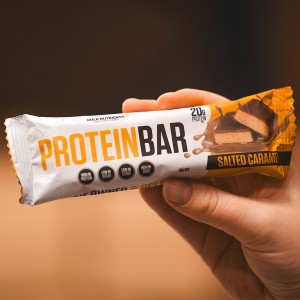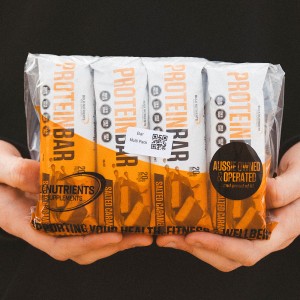Are Sugar Alcohol Ingredients in Protein Bars Safe?
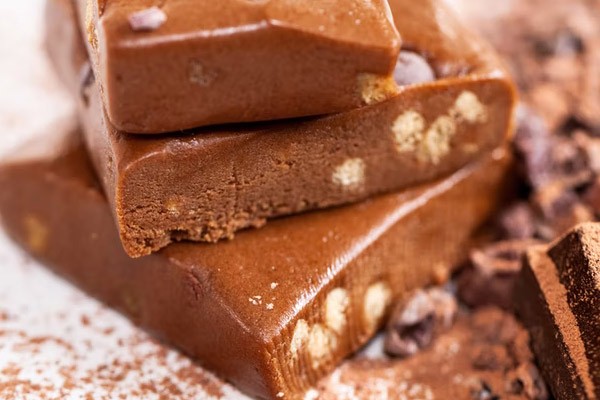
What are sugar alcohols?
maltitol, glycerol and sorbitol?
The most common sugar alcohols, found in protein bars, are maltitol, glycerol and sorbitol. They're usually present in protein bar recipes for three reasons:
- They add sweetness
- Have fewer calories than sugar
- Help to improve the texture of bars and helps to retain moisture.
But what about their caloric value?
- Maltitol = 2.1 calories
- Glycerol = somewhere between 1.98 to 2.26 calories
- Sorbitol = 2.7 calories
Carbohydrates (and thus sugar) have a value of 4 calories per gram - so sugar alcohols having around half that isn't a bad thing.
So when you're tracking your macronutrients, just make sure for every 2 grams of any sugar alcohol, you count it as a gram of carbohydrates.
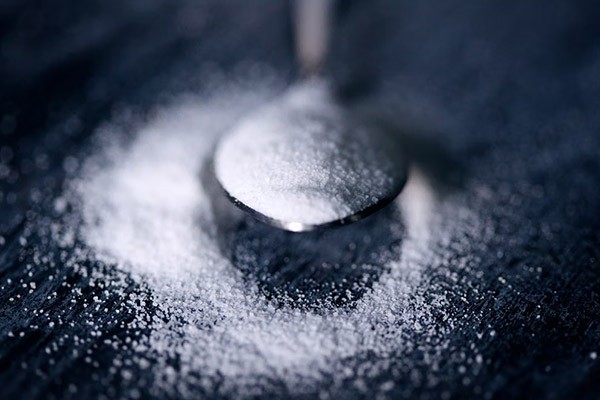
So for example:
- Maltitol = 3 grams
- Glycerol = 5 grams
- Sorbitol = 7 grams
- Total = 15 grams (so 7 grams of carbs).
The lowdown - sugar alcohols in protein bars aren't going to break your diet, you just need to be aware of them if you're tracking your macros.
Are protein bars healthier than chocolate bars? Some are, some aren't! Let us compare the chocolate bar and the protein bar. Some people say you should just eat the chocolate bar and pair it with a protein shake to get the best of both worlds, and while there's nothing wrong with that - it often isn't super practical if you're on the go, or running from the gym to another commitment.
That's when a protein bar, like our great tasting Protein Bars, come in handy! They combine the delicious taste of a fudgey chocolate bar with all the post-workout benefits of protein. It's easy to fit them into any sized bag, stash them in your office desk, your glove box - a perfect snack for wherever, whenever.
If you're concerned about sugar alcohols just remember, sugar alcohols are all converted into glucose anyway.
When you're getting enough fibre daily, and vitamins and minerals, a chocolate or a protein bar combined with your active lifestyle isn't going to destroy you or your progress.
It's all about balance.
Are sugar alcohols safe?
Like most things, unless they are consumed in a large dose, they appear to be perfectly fine.
One study concluded:
"The available clinical data generally suggest that moderate consumption of the above polyols (sugar alcohol) is not harmful to human metabolism."
Research suggests it could create some IBS issues, so if you notice this, then like anything, stop consuming them.
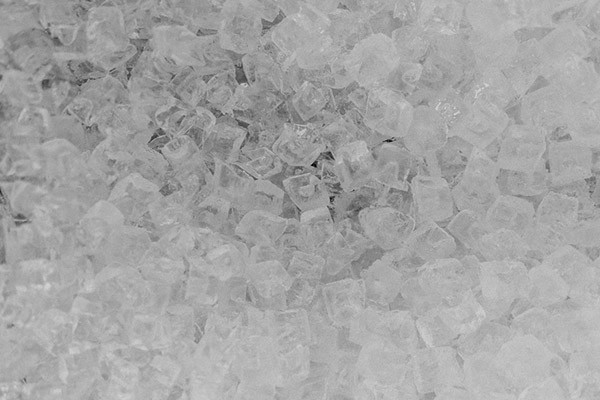
The bottom line on sugar alcohols
Is that, along with most things, they're fine in moderation.
Sugar alcohols like sorbitol, maltitol and glycerol aren't as sweet sugar, and they contain around half the calories.
They're also present to help improve the texture of bars and help to retain moisture.
They're safe to eat in the doses they are found, but if they give you too many bathroom visits, stop consuming them.
Are low-carb protein bars efficient?
For years, carbohydrates were spoken about as the macronutrient responsible for fat loss. There were theories that said because carbohydrates spike insulin (which inhibits fat accumulation) eating them must be bad.
When it was put to the test, studies showed that just because fat burning can be turned off during carbohydrate consumption, it doesn't mean that we still can't eat even 100% of our diet from them -- whilst in a calorie deficit -- and lose weight.
That's because fat and weight loss ultimately comes down to one thing - calories in vs. calories out, and ending up in a deficit overall.
One of the many reviews to disprove the theory included 32 studies that found low-carbohydrate or high-carbohydrate diets make no difference to fat loss. Insulin also isn't a factor, and if it were, we'd be putting on weight from whey protein - which is more insulinogenic than white bread!
Looking for a great low carb protein bar? Try ours!
That's right - we've got two delicious flavoured Protein Bars available for you to try now. Our Bulk Nutrients Protein Bars come in Salted Caramel and Choc Fudge, with a delicious fudgey texture sure to delight even the biggest of sweet tooths.
Each Bulk Nutrients Protein Bar recipe has 20g of protein from three sources, is low in sugar and low in carb (less than 3g per bar) and has less than 8g of fat per 60g bar. They're the perfect grab and go post workout snack and make a deliciously tasty dessert that's good for you! Enjoy a sweet treat without sacrificing your macros and fitness targets - learn more here!
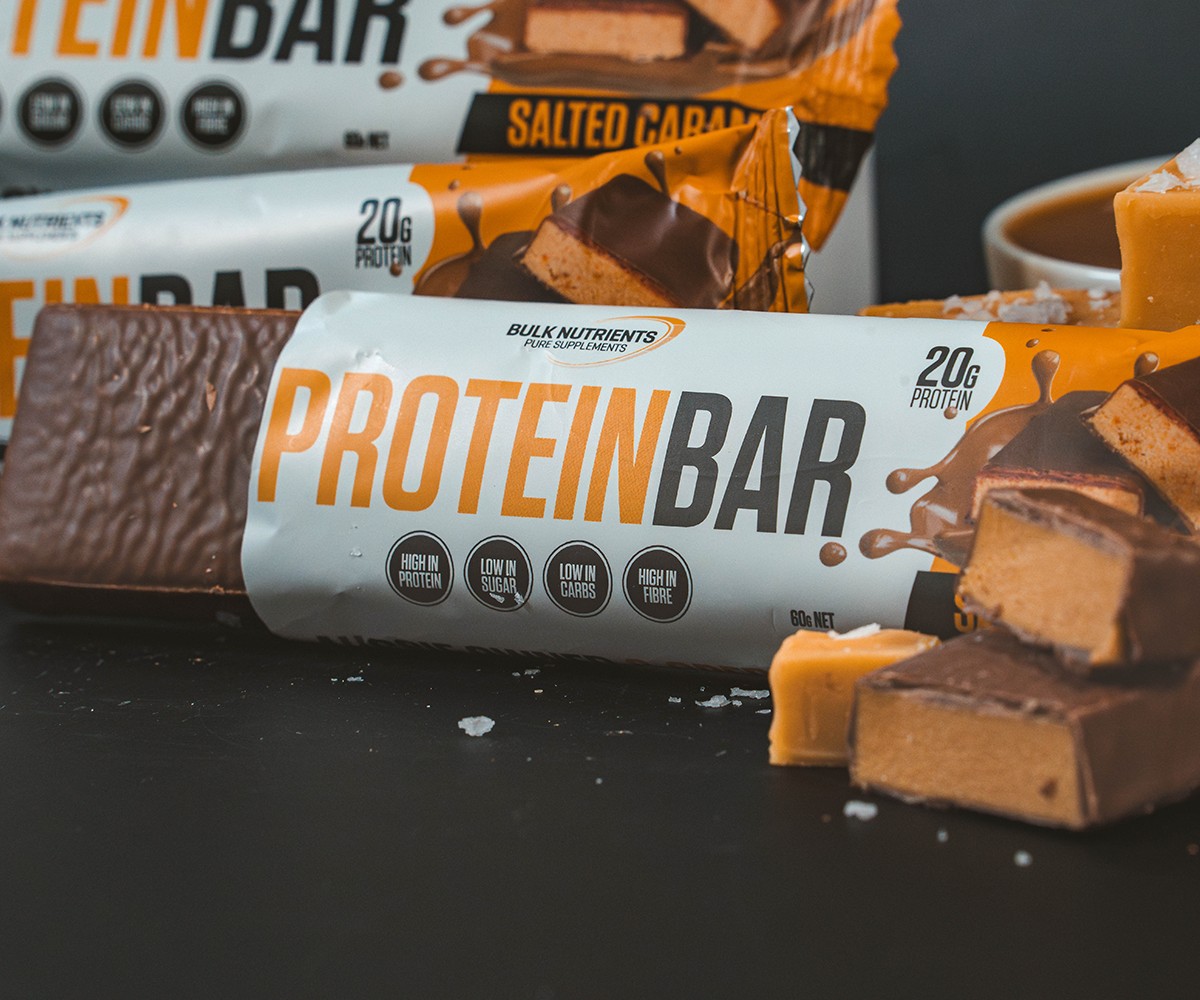
More Sugar-Related Reading
Do you do your research on sugar and sugar alternatives? As always the Bulk Blog has you covered with more great articles...
References:
- Sears B, Perry M. The role of fatty acids in insulin resistance. Lipids Health Dis. 2015;14:121. Published 2015 Sep 29. doi:10.1186/s12944-015-0123-1
- Shintani TT, Beckham S, Brown AC, O'Connor HK. The Hawaii Diet: ad libitum high carbohydrate, low fat multi-cultural diet for the reduction of chronic disease risk factors: obesity, hypertension, hypercholesterolemia, and hyperglycemia. Hawaii Med J. 2001 Mar;60(3):69-73. PMID: 11320614.
- Strasser B, Spreitzer A, Haber P. Fat loss depends on energy deficit only, independently of the method for weight loss. Ann NutrMetab. 2007;51(5):428-32. doi: 10.1159/000111162. Epub 2007 Nov 20. PMID: 18025815.
- Hall KD, Guo J. Obesity Energetics: Body Weight Regulation and the Effects of Diet Composition. Gastroenterology. 2017 May;152(7):1718-1727.e3. doi: 10.1053/j.gastro.2017.01.052. Epub 2017 Feb 11. PMID: 28193517; PMCID: PMC5568065.
- Salehi, A., Gunnerud, U., Muhammed, S.J. et al. The insulinogenic effect of whey protein is partially mediated by a direct effect of amino acids and GIP on β-cells. NutrMetab (Lond) 9, 48 (2012). https://doi.org/10.1186/1743-7075-9-48
- Regnat K, Mach RL, Mach-Aigner AR. Erythritol as sweetener-wherefrom and whereto?. Appl MicrobiolBiotechnol. 2018;102(2):587-595. doi:10.1007/s00253-017-8654-1
- Kholif AE. Glycerol use in dairy diets: A systemic review. AnimNutr. 2019;5(3):209-216. doi:10.1016/j.aninu.2019.06.002
- Slavin J, Carlson J. Carbohydrates. Adv Nutr. 2014;5(6):760-761. Published 2014 Nov 14. doi:10.3945/an.114.006163
- Mäkinen KK. Effect of long-term, peroral administration of sugar alcohols on man. Swed Dent J. 1984;8(3):113-24. PMID: 6435273.
Related Blogs
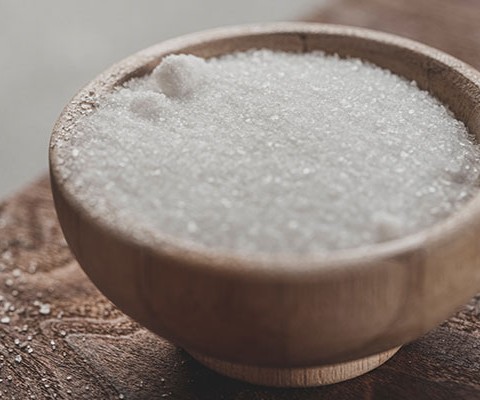
Is Sugar Addictive?
Posted by Bulk Nutrients
Estimated reading time: 5 minutes
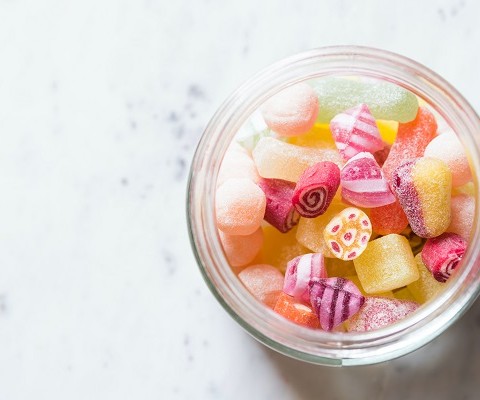
Is Sugar Bad for Us? How Much Is Ok?
Posted by Bulk Nutrients
Estimated reading time: 6 minutes

The Bar Has Been Raised - Big Time!
Posted by Bulk Nutrients
Estimated reading time: 5 minutes
